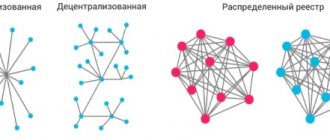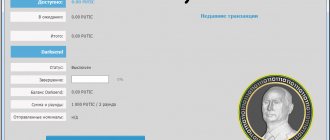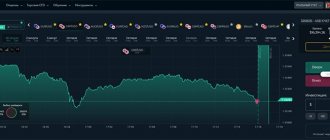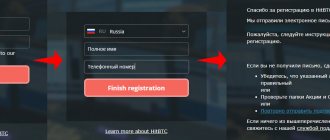Demand for training
The sudden demand for this relatively new technology, which has been around for less than a decade, faces a huge obstacle - a lack of human capital that is interested and trained. The number of vacancies tripled in 2020 and will obviously only increase. At the same time, search queries regarding training in blockchain technologies in various fields: legal, financial, technological are also growing. Incubators for “cultivating talent” are already being built in Asia.
Numerous courses are offered both online and in classrooms to prepare workers for blockchain projects.
We have prepared offers from Russian universities, which turned out to be very few, as well as foreign universities, which you can also get into (at least for online education).
Where can I learn to become a blockchain developer?
Finding a good blockchain specialist, and such a specialist in general, is not an easy task. There is no such specialty in classical universities. I myself studied at the Faculty of Computational Mathematics and Cybernetics (CMC) at Kazan Federal University, and my journey into the world of blockchain, as I said earlier, began with a hackathon from Microsoft. Our development team took part in a variety of activities. It was there that we received a lot of useful information. Nowadays, any interested person can find a bunch of useful material on the Internet, but back then it was difficult. Recently, Innopolis (a satellite city of Kazan) introduced a special course on blockchain for students, which lasts one semester.
By the way, we are always ready to hire a specialist with programming skills and teach him everything necessary in the process. The main thing is that this person has a keen interest and fire in his eyes.
Russian university programs
There are no blockchain courses as such in Russian higher education institutions. There are a lot of courses of varying degrees of usefulness on the Internet, some of them are even free, but there is no need to talk about their level. Russian universities offer advanced training courses for financiers and lawyers, which cover the issues of blockchain and cryptocurrencies. For example, on the “Open Education” website, where all university courses are collected, the program “Legal regulation of relations on the Internet” (St. Petersburg State University) was published.
MGIMO lawyers also had the opportunity to take the course “Legal Basis for the Regulation of Blockchain Technologies.”
HSE, Moscow State University and other large universities announced additional master classes, scientific interest, and research in this area.
The Higher School of Economics offers advanced training programs from the Faculty of Computer Science: Creating projects on popular blockchain platforms and Implementing blockchain technology in companies.
Blockchain Founder lists an MBA from Moscow State University as its partner. The program is a two-week immersion course in technology.
We did not find a separate specialty for blockchain developers (for admission to a bachelor’s degree, for example). It is not yet rational to add it; in addition, the implementation of a new program requires many approvals at different levels. Therefore, for those who are planning to become a blockchain developer, in the meantime, you should learn programming and work with the relevant languages. Like most modern highly paid professions, such a specialty is not available at a university; the employee acquires his skill in practice, working in a team, studying project code, reading cases.
Read more in the article “How to become a blockchain developer.”
Who is a blockchain engineer, blockchain developer?
Blockchain engineers and developers are specialists in a wide range of IT technologies who are engaged in blockchain development and writing smart contacts, working with decentralized services and cryptographic tools. A high degree of protection is necessary, first of all, in the financial sector. Its use is advisable in structures where personal information about citizens is stored in electronic form.
Blockchain – from the English block chain (literally “chain of blocks”) – is a technology implemented in the Bitcoin system.
The need for specialists to work with such an area of IT technologies as blockchain is rapidly growing (primarily, this area is in demand in the field of security of the digital economy). The new format is gradually gaining popularity around the world. Experts are already confidently saying that thanks to the use of blockchain technology, it is possible to achieve a higher level of protection of personal information from hacker attacks.
Today, blockchain specialists are already successfully working in the most developed countries - the world's leading companies have published 14 vacancies for blockchain engineers. Despite the fact that the Government of the Russian Federation has not yet developed a definite attitude towards cryptocurrencies served by blockchain technology, its spread is noticeable in our country: in 2020, 50 companies were registered using this technology in their work.
Blockchain specialists are responsible for creating and implementing digital solutions for companies using the blockchain. A blockchain engineer studies the technology needs of a company and develops appropriate applications to meet them. The list of required skills includes:
- Java;
- Hyperledger Fabric;
- Ripple;
- solidity;
- Python;
- Bitcoin;
- Oracle Identity and access control technologies.
Blockchain technology is applicable not only in the economy of the future, but also in those areas where it is necessary to improve the security system for confidential information. Features of the blockchain system are a continuous and sequential chain in which copies (blocks) are stored independently of each other on electronic media, without the possibility of penetration by third-party users, which, in comparison with modern banking multi-level security systems, is an absolute advantage.
Cornell Blockchain
The youngest of the Ivy League universities, Cornell University was created from the very beginning to study the latest technologies. Since 1865, Cornell has never wavered from this creed, being one of the most influential research universities in the world and a historic leader in the fields of business and computer science.
Cornell continues its tradition of innovation. So they launched Cornell Blockchain: a project supported by IC3. Cornell Blockchain is dedicated to providing education, certification and application of blockchain technology to students and corporate clients.
Duke University
An international leader in medical, business and technology research, Duke University has one of the highest levels of research funding. From AIDS research to theology and economics. This university has been at the center of innovation for almost a century.
Duke's Blockchain Lab is a specialized research center led by students themselves. Its goal is the latest developments in blockchain technology. Global developments are being carried out in laboratories and seminars, which are designed to adapt blockchain for industry, finance, banking, etc.
What can a blockchain developer do?
There are several development paths for a blockchain developer.
Core developers focus on the fundamental technology principles and protocols—the core of the blockchain. Blockchain developers are working on software integration and decentralization. To someone less deeply immersed in the topic, the difference may seem insignificant, but this is misleading.
We have already mentioned that there are many opportunities to work in both public and private blockchains. The first ones may seem more familiar: ICOs and public services are associated with them.
STEEM, ICON and Ethereum are examples of public blockchains. Private blockchains are created for the needs of certain companies. For example, Barclays wants to provide itself with its own blockchain and is engaged in a number of studies in this area. The company's specialists experiment a lot, trying to find out what will be most useful for the end consumer.
Georgetown University / GEORGETOWN
It is the oldest Catholic university in the United States and one of the most prestigious private research institutions in the world. He has close ties to the government, as well as direct access to some of the most powerful people in politics, industry, and finance. In recent years, Georgetown's McDonough School of Business has become one of the most prominent forces in academic blockchain research.
Separate courses on blockchain are also offered in:
- Massachusetts Institute of Technology (Digital Currency Initiative Media Lab),
- New York University (Stern NYU),
- Princeton University (available on the coursera: https://www.coursera.org/learn/cryptocurrency)
IBM: blockchain for developers
This is an online course on blockchain basics if you are a software developer or new to blockchain. Presents a series of videos that outline the concepts, components, and high-level strategies for building business networks on the blockchain. Plus practical experience in modeling and building a circuit, creating your own application.
The first part of this course covers basic concepts, no programming skills are required. However, to complete three of the four labs, you must understand programming. It's also useful to write code in JavaScript.
If you successfully complete the course, you will receive a certificate of completion. You will be required to take several tests at the end of the module and a final exam.
https://www.coursera.org/learn/ibm-blockchain-essentials-for-developers
University of Nicosia
The University of Nicosia is the largest university in Cyprus and one of the most innovative, forward-thinking colleges in the world. Today he is best known for his focus on modern digital technologies. Became the first university to accept Bitcoin as tuition fees. UNIC has also become known as the first university in the world to offer a full program in blockchain and digital currency technologies. While other schools only have courses, certificates, or hours as part of a regular undergraduate degree, this university has developed a full three-track master's program.
Profession Cryptocurrency and blockchain specialist
Blockchain specialist - who is he and what does he do?
First, let's understand what blockchain is.
From English “blockchain” is a chain of information blocks with a strict sequence. Blocks are data about transactions, deals and contracts within the system, which are displayed in cryptographic form. They are formed into a chain and interconnected. To write a new one, the system must read information from all previous ones. The information that is collected cannot be deleted, replaced or replaced. Data is accumulated over time and a supplementary database is built from it.
For a better understanding, blockchain can be compared to an enterprise’s work journal, in which operations performed are recorded in chronological order, for example, turning on equipment, diagnosing it, and carrying out repairs.
The key feature of the technology is decentralization. There is no main server where all the information resides. Information is owned simultaneously by all network participants. This means that everyone has equal rights and can perform transactions directly.
Blockchain is necessary to store all kinds of data on financial transactions, fulfill legal obligations, ensure property rights, and protect data (keys are used, without which it is impossible to interfere with the chain).
One of the main advantages of technology is that its use eliminates intermediaries. As a result, a more honest system of interaction is formed, reducing the possibility of manipulation. An example is Bitcoin, one of the options for implementing blockchain technology. It makes banks unnecessary for storing and transferring funds - users carry out all transactions directly.
Description of the profession of a blockchain specialist
Blockchain specialists are engaged in development, work with cryptographic tools, write smart contracts (a special function within the blockchain that is needed to conduct transactions), and trade on a cryptocurrency exchange. To do this job, you need to undergo training at a university in one of the IT specialties.
Blockchain startups, general IT companies, banks, creators of payment systems, and enterprises from various business sectors are “hunting” for professionals in this field. Blockchain specialists are paid a lot. For example, an information security expert in blockchain can earn 120-180 thousand dollars a year, a developer - about 108 thousand.
If you want to be a creator of blockchain technologies or engage in cryptocurrency trading, take distance learning. A universal IT specialty will provide up-to-date knowledge about programming languages (C++, Java, Go), the basics of design and development, the structure of top blockchain systems, algorithms and protocols.
After completing the training, you can trade on cryptocurrency exchanges, develop software in IT companies, and engage in research in this area.










